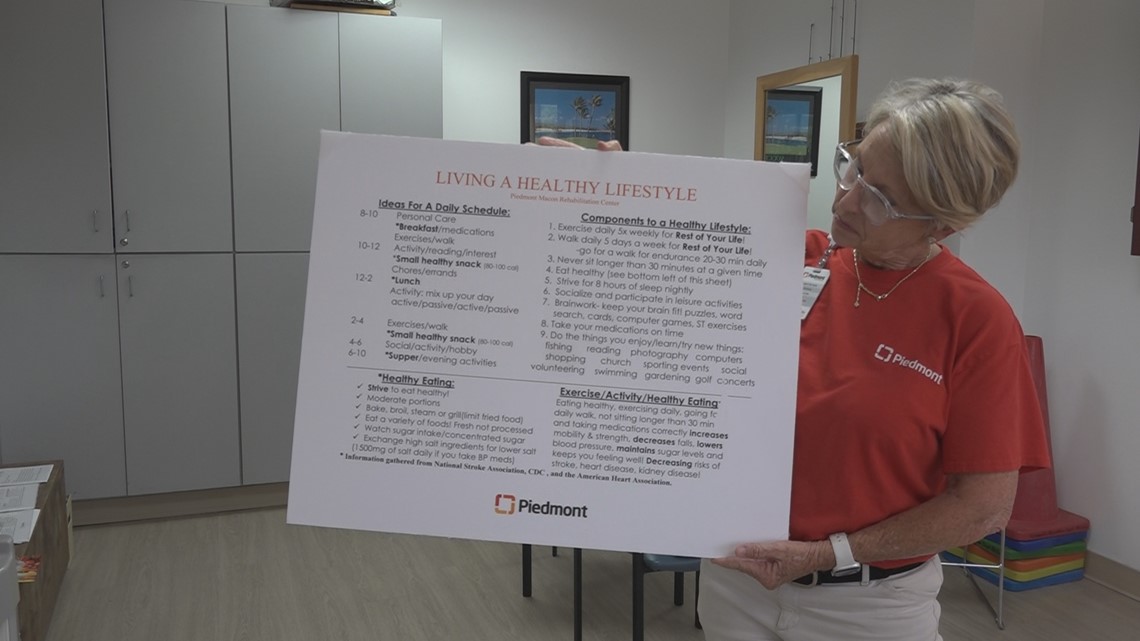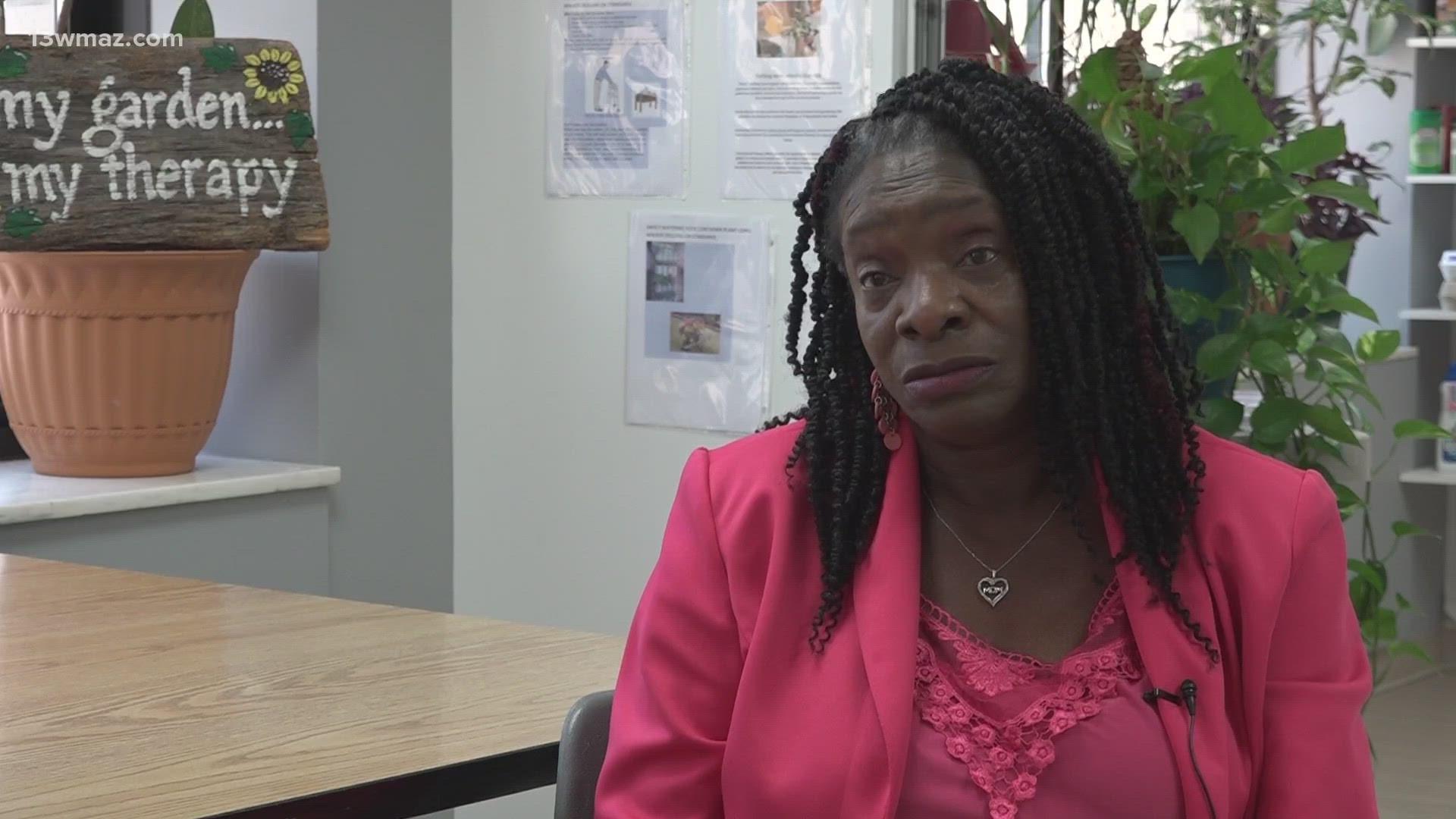MACON, Ga. — Mary Harris was an active woman before her stroke. She loved to cook, help run Bible study, and go to ministry, but her life changed in February 2022.
"I went to the restroom and upon me exiting the restroom, I fell. I had a really bad cramp in my left calf," the mother of two said.
This all started in the morning. She didn't attend her Zoom meeting and decided to lie down. She told her husband how she was feeling and he brought dinner that night after she didn't cook. When she got up, her husband noticed something was wrong.
"He was watching me and he says, "You're dragging your leg," I said, "I'm not dragging my leg." He said 'Yes, you are,' and I was like, 'You know, I'm just tired. I'm going back to bed.'"
After fussing back and forth with her husband and daughter, Harris went to the Piedmont Macon ER. Doctors told her she was being admitted and they ran some tests.
"The next day, the doctor came in and told me I had a stroke," Harris said.
According to the CDC, "every 40 seconds, someone in the United States has a stroke." African American adults are twice as likely to have a stroke than white adults. Piedmont Macon Stroke Coordinator Monica Cook says the most important thing to remember after a stroke is to have hope and never give up.
"Go through the therapy, wake up each day like an opportunity, this is a new day to grow, to get better. Don't let your deficits be your defeat. You have to wake up every day with the intention to get better and get a good support system," Cook said.
Signs and Symptoms
Piedmont Macon provided 13WMAZ with some tips on how to recognize when someone is experiencing a stroke. It's called F.A.S.T. The image below details what the acronym stands for.
Stroke is the leading cause of serious long-term disability. Individuals may have trouble speaking, lose the ability to walk, lose eyesight or have paralysis. Every person's symptoms are different and they may not have all the signs. Cook says timing is everything.
"For every one minute that the brain is not getting blood flow, we're losing about 2 million brain cells," Cook said.
Harris lost the ability to use her left arm and leg. With therapy and always staying on her routine, she was getting back to her normal self.
"Make every day positive. Don't lose one day of trying to say 'I don't want to do my therapy.' Push yourself," Harris said.
If an immediate family member has high blood pressure, high cholesterol, smokes, or has diabetes, you could be at greater risk. It's important to talk with her doctor about how you can lower your risk.


After months of treatment, Harris was able to use her left side again and wants to tell viewers, "Make sure you try to have a balanced meal, integrate all your food groups, exercise and you never stop doing your exercise."
If you or someone you know is showing signs of a stroke, you should not wait and call 911 immediately.

